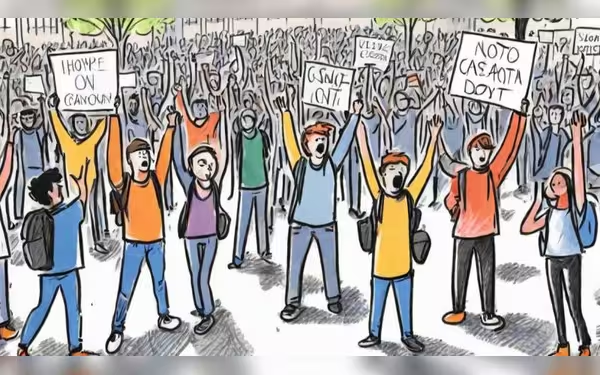Sunday, July 7, 2024 12:33 PM
Book 'If We Burn' Warns of Horizontal Uprisings
- Horizontal uprisings lack clear leadership and governance structures
- Egyptian uprising in 2011 struggled with establishing cohesive leadership
- New Left movement of the 1960s rejected hierarchical structures for 'horizontalism'
 Image Credits: thefridaytimes
Image Credits: thefridaytimesThe book 'If We Burn' examines the aftermath of mass uprisings, emphasizing the challenges of horizontal movements lacking clear leadership and governance structures. It highlights the Egyptian uprising's struggle with leadership and traces the roots of 'horizontalism' to the New Left movement of the 1960s.
Mass uprisings, characterized by large-scale protests and fervent rhetoric against established authorities, often capture media attention. However, a recent book titled 'If We Burn' sheds light on the aftermath of such movements, emphasizing the need for a realistic analysis of their outcomes.
The author, drawing on experiences as a foreign correspondent, highlights the tendency of leftist and liberal groups to lead these uprisings in various regions worldwide. The book underscores the challenges posed by the 'horizontal' structure of these movements, lacking clear decision-making hierarchies and promoting equality among participants.
An illustrative example is the Egyptian uprising in 2011, which successfully ousted a dictator but struggled to establish a cohesive leadership for a democratic transition. The vacuum created allowed the Muslim Brotherhood to seize power, leading to division among different factions.
Examining the roots of horizontal uprisings, the article traces back to the New Left movement of the 1960s, which rejected traditional Marxist approaches and advocated for addressing social issues like racism and gender inequality. This rejection of hierarchical structures paved the way for 'horizontalism' as a protest strategy.
While mass uprisings may spark change, the lack of clear leadership and governance structures can impede long-term success. Understanding the complexities of these movements is crucial for evaluating their impact and fostering sustainable social change.













